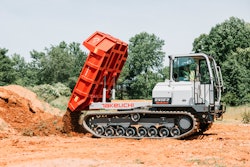
You may not say those words aloud, but if you’re a business owner, I’d be willing to bet you think them from time to time. Why not? You’re the boss. It’s your company, and you’ve assumed all the risk.
However, every once in a while (especially in the midst of the holiday season) it’s good to take a look at your business from a distance. If the way you deal with employees hasn’t changed over the years, well, perhaps it should have.
As your workforce changes and adapts – particularly since you’re likely adding millennials to your crews as older members age out – you’ll need to have a certain level of emotional intelligence to interact with your people properly, which will lead to measurable positive results.
Not familiar with the term “emotional intelligence?” It’s a set of soft skills used to deal with employees. According to former New York Times writer Daniel Goleman, who introduced the concept to the business community in the book Emotional Intelligence, the best leaders are those who have a little something more than high intelligence or superior technical skills.
In an article for the Harvard Business Review, Goleman outlined the components of EQ: self-awareness, self-regulation, motivation, empathy and social skills. Although intellect and cognitive skills rank high as necessary for performance, Goleman determined emotional intelligence is more than twice as important as the other skills. Intimidating, no? Gone are the days of just telling your employees what to do, the employees following your direction, and everyone going home happy.
Think about how you’ve been interacting with your employees and their responses to you. I’ve written before about employees leaving jobs where they don’t feel appreciated. If you’re having high turnover, don’t automatically assume it’s because of money, particularly if they are in their early 30s or younger.









